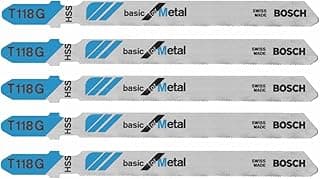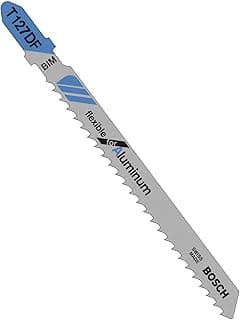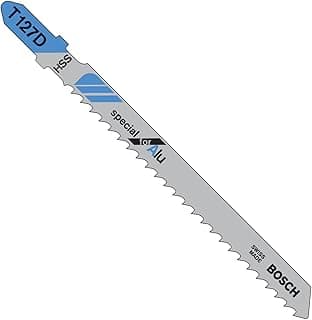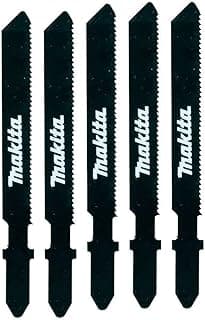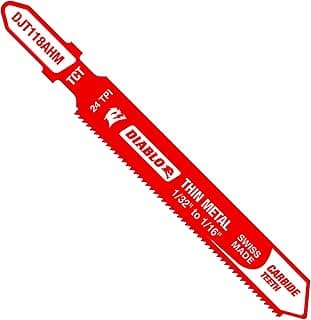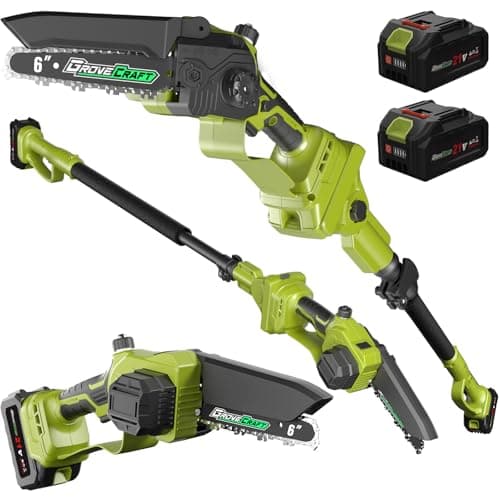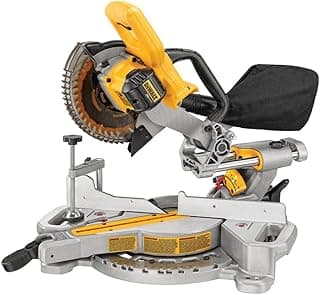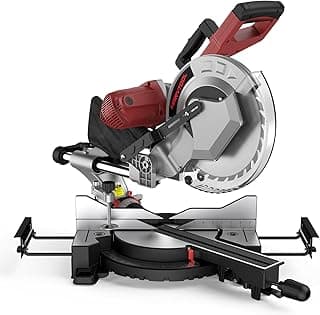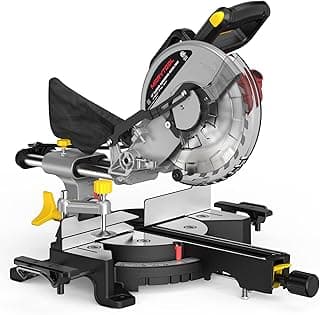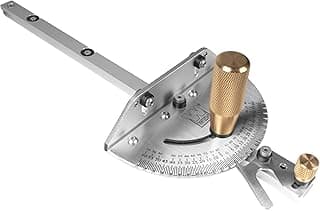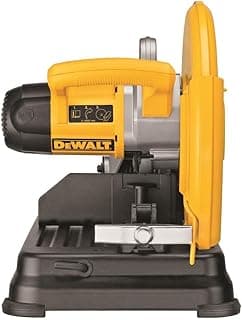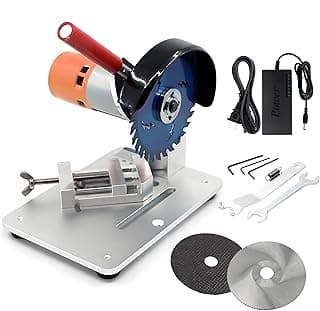Cutting aluminum with precision takes more than just power—it requires the right blade. That’s where finding the best jig saw blade for aluminum comes in. Whether you're slicing through thin sheets or thicker extrusions, blade design and tooth count make all the difference.
But here’s the thing—choosing the wrong blade can result in rough edges or even warped material. So, let’s dig deeper. For those exploring other materials, you might also want to check out the best jigsaw blade for acrylic, especially if your projects span multiple mediums. And if you’re upgrading your power tool setup, our insights on the best corded jig saws for woodworking or the best jig saw models will help you complete your toolkit.
Let’s get started—because precision cutting starts here.
Top Picks
Best for Thin Metal Cuts: Bosch T118G 5 pc. 3-5/8 in. 36 TPI Basic for Metal T-Shank Jig Saw Blades
The Bosch High-Speed Steel jigsaw blade stands out for its precision when working with thin sheet metals. With 36 teeth per inch, it delivers exceptionally smooth and burr-free cuts on both ferrous and non-ferrous materials. The high-speed steel construction enhances longevity, especially for straight cuts, while its compact 3-5/8-inch length ensures solid control in industrial or workshop use. Using proper lubricant helps maintain performance and blade life during continuous metal cutting.
From a customer perspective, this blade is highly valued for accuracy and clean results on thin metal sheets, making it ideal for HVAC, automotive, and fabrication tasks. However, some users note that it’s not suited for thicker stock, limiting versatility. Overall, it’s a reliable, purpose-built option for anyone who needs fine, controlled cuts in very thin metals.
Best for Aluminum Cuts: Bosch T127D 5-Piece 4 In. 8 TPI Special for Aluminum T-Shank Jig Saw Blades
The Bosch aluminum jigsaw blade is designed for versatility and performance across multiple materials, including aluminum, fiberglass, and plastic. With its 8 TPI tooth configuration, it provides quick and efficient cutting through medium-thickness materials, balancing speed with control. The high-speed steel blend ensures extended durability and resistance to wear, even under frequent use. Measuring 4 inches in total length, the blade offers solid reach and stability for straight cuts.
Users appreciate its reliable cutting action on aluminum and composite materials, particularly when making fast, clean passes in thicker sections. It’s well-regarded for maintaining sharpness and minimizing vibration. However, some note that it can leave slightly rough edges on thinner materials. Overall, this Bosch blade performs exceptionally for metal and non-metal tasks where efficiency and durability matter most.
Best Flexible Metal Blade: Bosch T127DF 5-Piece 4 In. 8 TPI Flexible for Aluminum T-Shank Jig Saw Blades
The Bosch 8 TPI aluminum jigsaw blade combines cutting speed with strength, making it ideal for aluminum, fiberglass, and plastic. Its bimetal construction enhances durability and flexibility, reducing the risk of breakage during demanding cuts. With a 4-inch overall length and 3-inch working length, it provides excellent stability and control for straight cuts across medium-thickness materials. The 8-tooth-per-inch design ensures a fast yet consistent cutting pace, especially when using proper lubrication for metal work.
Customers value its ability to cut through various non-ferrous materials without bending or snapping. Many highlight its efficiency in delivering clean, accurate lines on aluminum and composite panels. The flexible structure also adds confidence when working on curved or uneven surfaces. While it performs best with lubricant to prevent overheating, users find it a dependable, long-life blade suited for both workshop and professional applications.
FAQs
What kind of jigsaw blade do you use to cut aluminum?
For cutting aluminum, use bi-metal or high-speed steel (HSS) jigsaw blades. These blades combine durability with flexibility, making them ideal for non-ferrous metals like aluminum. The fine teeth of bi-metal blades prevent chipping and ensure smoother cuts.
When working with thicker aluminum stock, choose a blade with fewer teeth per inch (TPI), typically in the 10–14 range, for faster cutting. For thin aluminum sheets, go with a finer blade—18–24 TPI—to maintain control and avoid tearing or bending the metal.
Lubrication also matters. Applying a cutting fluid or wax helps reduce friction and keeps the blade from overheating.
What jigsaw blade is used to cut aluminium?
A bi-metal jigsaw blade with a medium-to-fine TPI is the go-to option for aluminum. Bi-metal blades combine high-speed steel teeth with a flexible carbon-steel body, offering both toughness and flexibility during high-speed cutting.
If you’re cutting soft or thin aluminum, opt for a blade labeled specifically for “metal” or “non-ferrous metals.” These blades have a wavy or milled tooth pattern that reduces vibration and produces a smoother edge.
Always ensure your jigsaw is set to a low or medium speed. Aluminum can melt at high friction points, so controlling speed helps maintain a cleaner, cooler cut.
Can a jig saw cut aluminium?
Yes, a jigsaw can absolutely cut aluminum, as long as you use the correct blade and technique. Many DIYers assume aluminum is too soft or slippery to handle, but with a steady hand and a sharp bi-metal blade, jigsaws can cut through sheets, bars, and extrusions up to several millimeters thick.
To get the best results, secure your workpiece firmly with clamps. Use a slow, steady feed rate—pushing too fast can clog the blade or generate heat buildup. Adding lubricant minimizes friction and extends blade life.
In short, the jigsaw’s versatility makes it perfect for cutting aluminum cleanly and efficiently.
What TPI is best for cutting aluminium?
The best TPI for cutting aluminum depends on material thickness. For thin aluminum sheets (under 1/8 inch), use a fine blade with 18–24 TPI. For thicker aluminum sections or extrusions, a coarser 10–14 TPI blade works better, as it clears chips more effectively and reduces clogging.
The rule of thumb: always keep at least two to three teeth in contact with the material at all times. This ensures a smooth cut without snags or vibration.
If you’re uncertain, start with a mid-range 14–18 TPI bi-metal blade—it balances speed and precision across most aluminum applications.
Final Thoughts
Finding the best jig saw blade for aluminum comes down to matching blade type, TPI, and cutting speed to your project’s demands. Bi-metal blades remain the top choice for their durability and precision, while proper lubrication and speed control enhance results.
Whether you’re a craftsman shaping metal panels or a hobbyist fine-tuning small projects, the right jigsaw blade turns aluminum cutting into a smooth, effortless process.

